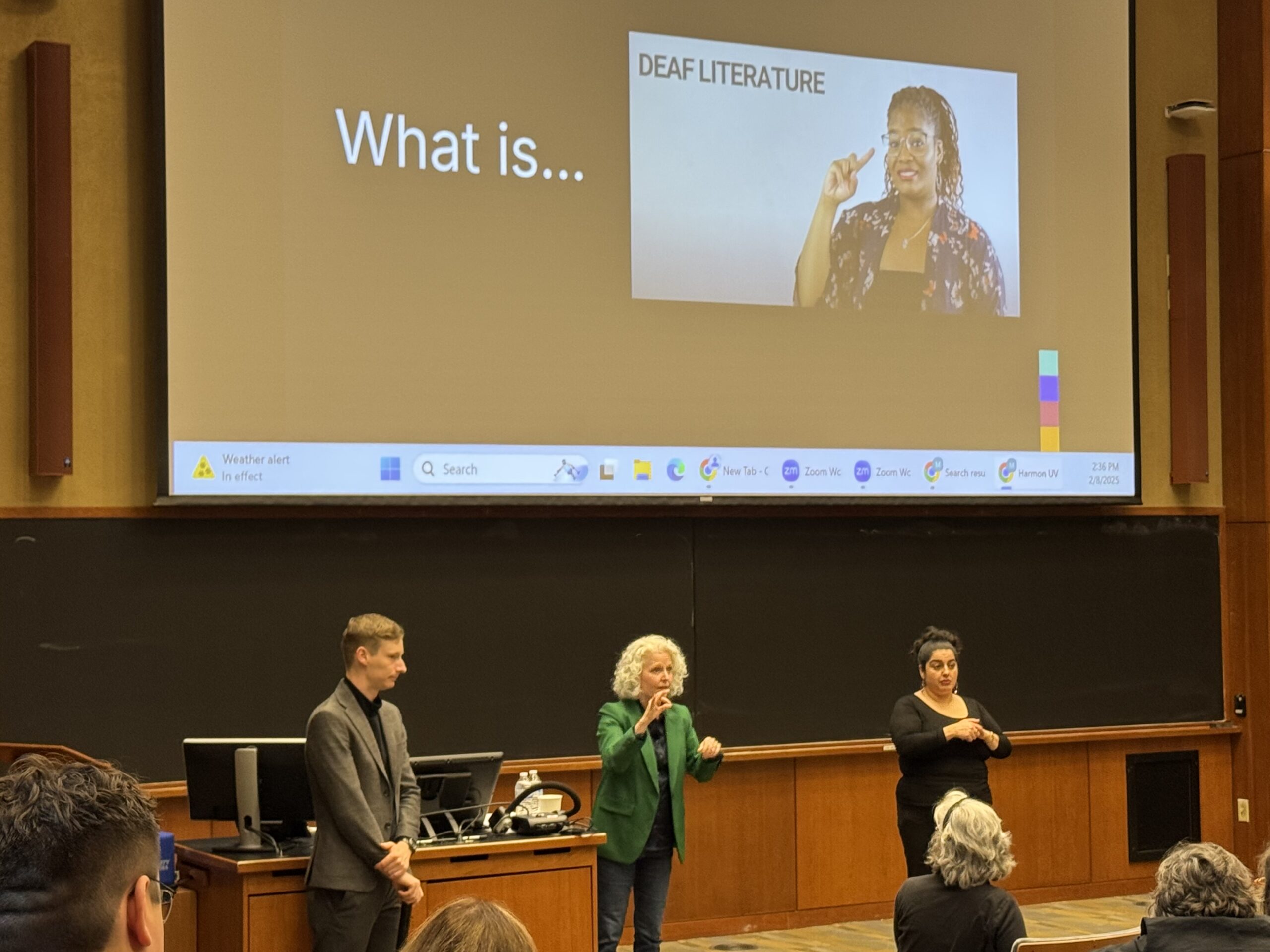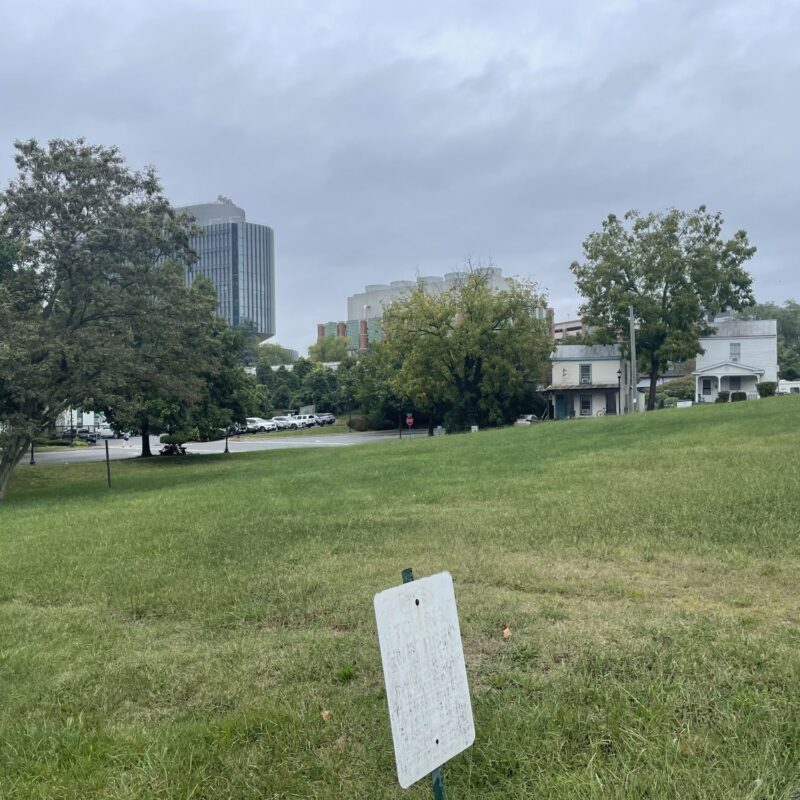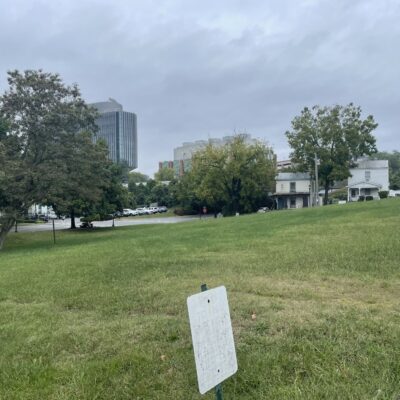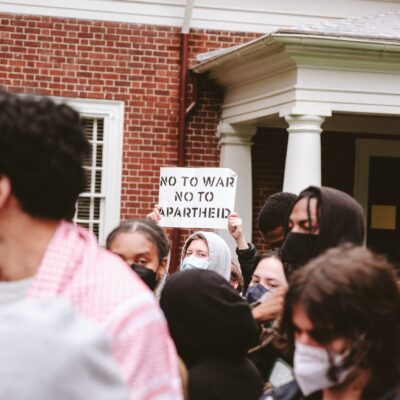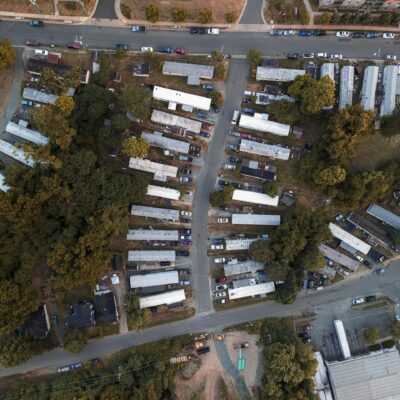Eighty attendees gathered to celebrate Deaf literature at the University of Virginia on February 8. The festival, which started as a student project for fourth-year Molly Rathbun, brought attention not only to the vibrant Deaf literature community, but the importance of accessibility.
The festival first took shape last spring, as an independent project under Rathbun’s advisor, Gregory Propp. While working at New Dominion Bookshop, which often hosts events with the UVA English department, Rathbun refined her vision. Months of outreach, fundraising, and logistics followed.
Multiple interpreters translated the diverse perspectives of six authors who gathered in Nau Hall for the festival. For Deaf-blind audience members, tactile interpreters signed directly into their hands.
This attention to accessibility was central to Rathbun’s mission.
“I wanted to use my privilege as a UVA student, and someone that loves literature and has worked folk festivals before, to bring together really notable authors for the community and give them a space to all come together,” says Rathbun, who does not have an auditory impairment. “I fell in love with the Deaf community the second I saw one of these events happen—it’s one of those things you will never forget.”
While American Sign Language interpreters are increasingly utilized at major events, including the Super Bowl halftime show, the practice has been scaled back by the Trump administration.
The National Association for the Deaf has called for the White House to bring back ASL interpreters at press briefings. The White House ASL policy, which was established after the first Trump administration failed to provide interpreters at briefings at the height of the COVID-19 pandemic, was created in 2021 and led to the White House hiring its first full-time ASL interpreters.
Interpreters have been absent at briefings since Inauguration Day, and the accessibility section of the White House website—including White House ASL videos—has been removed.
Other executive actions, including the removal of diversity, equity, inclusion, and accessibility programs and jobs, have also raised concerns for the National Association for the Deaf and other organizations, including the National Black Deaf Advocates.
According to a 2022 proclamation from Gov. Glenn Youngkin that recognized Deaf Awareness Week, “approximately 863,000 Deaf, Deafblind, and hard-of-hearing individuals reside in Virginia.”
For most of her life, author and activist Terry Galloway relied on hearing aids. A cochlear implant changed that, introducing her to a new world of sound—along with the complexities of being “cured.”
At the event, Galloway read a chapter from her memoir, Mean Little Deaf Queer, which is being reissued this year with an afterword addressing Galloway’s cochlear implant—something she compares to unlocking a sixth sense.
“I used to watch people talk, and I couldn’t hear, but I would watch these exchanges in the air, and watch what it did to their faces and their relationships,” Galloway says. “And I thought, ‘What is that?’ And now I know.”
She had long resisted the technology, wary of the idea that disabled individuals need to be “cured.” Even now, she feels conflicted about her book’s original audiobook, narrated by another speaker because of Galloway’s deaf-accented speech—which has changed significantly since the implant.
“Now I’m narrating for this re-release, which I think is very cool,” she says. “At the same time, it makes me a little angry, because I think they should have let me do it in my own voice back then. It’s not that I was unintelligible, because I was not, but they would have understood what deaf speak could be.”
Leah Hager Cohen, author and Barrett Professor of Creative Writing at the College of the Holy Cross, grew up surrounded by sign language. Raised by parents who taught at the Lexington School for the Deaf, she once wished she were deaf herself and could join the students around her.
For her part, Cohen planned to spend her time at the festival exploring who has a right to tell a story. As a hearing person and former journalist, she wrote Train Go Sorry: Inside a Deaf World by blending reporting on Deaf students with her own family’s experiences.
“We couldn’t possibly tell only our own story, because our lives intersect with other people, other communities,” Cohen says. “I think we’re always going to wind up, if we’re interested in storytelling, telling our own stories and involving other people’s stories. But how can we go about that in a way that is respectful and humble?” Cohen says.
While Rathbun designed the event with the Deaf community in mind, she also hopes hearing attendees gained a deeper appreciation for different ways of communicating.
“I think [it taught] them a lot and maybe [encouraged] them to have interpreters at their future events, and invite the Deaf community and have a Deaf author and consider Deaf literature as something that is as significant as it is,” Rathbun says. “If anyone [learned] anything at all from the event, I think [it was] a success.”
